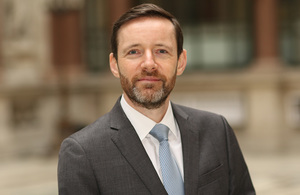UKHSA calls for a renewed effort to tackle TB
The UK Health Security Agency (UKHSA) is calling on the public and healthcare professionals to help reverse an upward trend in tuberculosis (TB) cases.
The incidence of TB in England had been falling significantly since 2011, when it was among the highest in western Europe with a total of 8,280 cases recorded. However, in 2019 the rate of decline reversed, with cases increasing by 2.4% (from 4,615 in 2018 to 4,725 in 2019).
While TB incidence appeared to fall in 2020 (to 4,125), this most likely reflected healthcare access and provisions during the pandemic and provisional data indicates that cases of the infection rose by 7.4% in 2021 compared to 2020.
Anyone with a cough, particularly those in groups that are at high risk for TB, are being urged not to dismiss their persistent cough and fever as COVID-19 as it could be caused by a range of other issues, including TB.
Tuberculosis is a serious infectious disease and symptoms include a persistent cough (longer than 3 weeks) and fever. While it can be life threatening without appropriate treatment, in the vast majority of cases it can be successfully treated with antibiotics.
The risk factors for TB include close contact with a person with infectious TB disease, migration from countries with high rates of TB, homelessness, substance misuse, a weakened immune system and imprisonment.
Dr Jenny Harries, the CEO of UKHSA, said:
TB is curable and preventable and now is the time to get our elimination efforts back on track. Despite significant progress towards elimination in recent years, tuberculosis remains a serious public health issue in the UK.
With treatment, most people will make a full recovery, but delayed diagnosis and treatment, particularly during the pandemic, will have increased the number of undetected TB cases in the country.
It is important to remember that not every persistent cough, along with a fever, is COVID-19. A cough that usually has mucus and lasts longer than 3 weeks can be caused by a range of other issues, including TB.
Tuberculosis develops slowly, and it may take several weeks, months or even years after you were infected before you notice you’re unwell. Contact your GP if you think you could be at risk so you can get tested and treated.
Numbers and rates of cases with drug resistance increased in both 2019 and 2020. There were more cases of drug-resistant TB in 2020 than any year since enhanced surveillance began. 11.6% of cases were resistant to any drug and 2.4% were multidrug resistant (compared to 1.8% in 2019).
TB disproportionally impacts under-served populations such as those who have been homeless, spent time in prison or misused drugs and other substances. Ensuring that everyone has access to a timely diagnosis and effective treatment is critical.
Health and Social Care Secretary Sajid Javid said:
Despite significant progress made in the last decade towards eliminating tuberculosis in England, it is very concerning to see an upward trend in cases. TB is a serious infectious disease, and without treatment it can be life-threatening.
TB disproportionately affects people in deprived and underserved groups, so it is vital everyone has access to effective treatment so we can continue to level up health across the nation.
If you have a persistent cough that lasts more than 3 weeks along with a fever, please contact your GP as soon as possible to get tested.
Symptoms of TB include:
- a persistent cough that lasts more than 3 weeks and usually brings up phlegm, which may be bloody
- breathlessness that gradually gets worse
- lack of appetite and weight loss
- a high temperature
- night sweats
- extreme tiredness or fatigue
